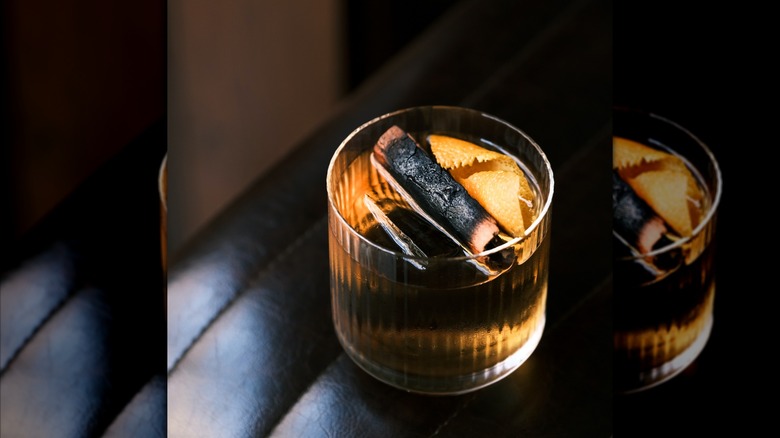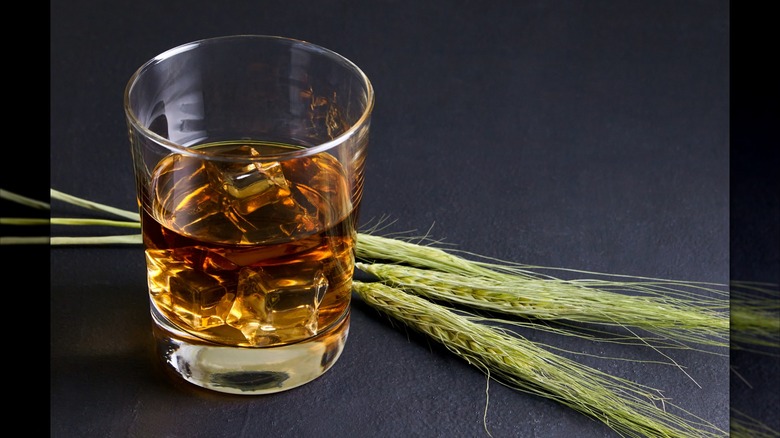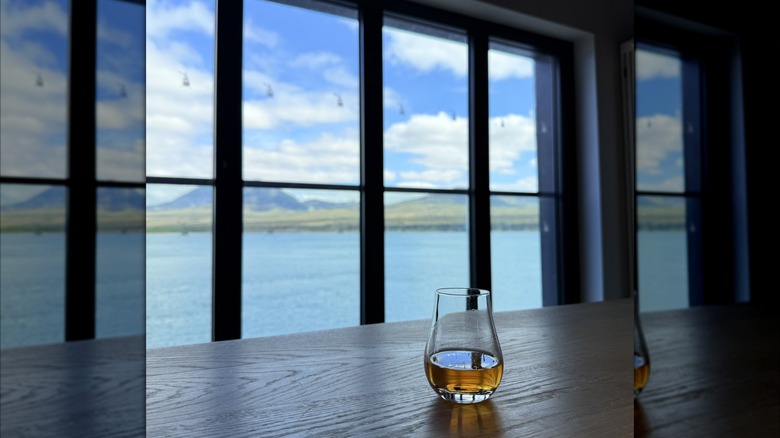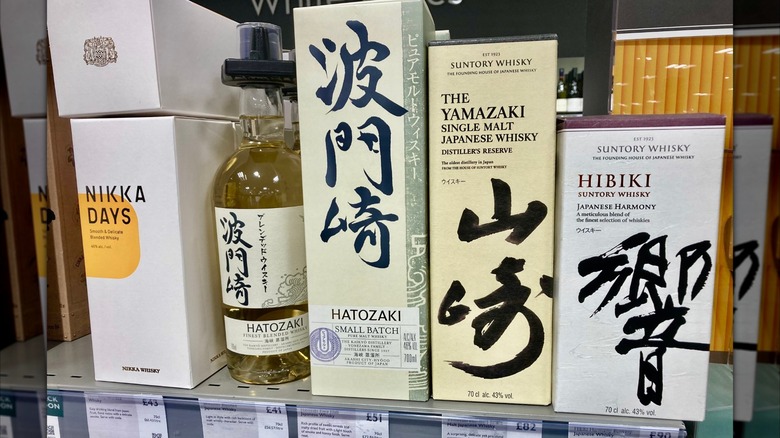The Best Beer For Every Type Of Whiskey Lover
The world is full of beer aficionados and whiskey connoisseurs, but there's no rule that says you can't be into both beverages. In fact, some beers and whiskeys even share similar ingredients like malted barley, a key ingredient in many beers and the eponymous ingredient in the revered single malt Scotch whiskey. But the worlds of beer and whiskey are also quite diverse, so it can be tough to choose just one kind of beer to drink based on your whiskey preferences. With so many options on the market, Chowhound consulted an expert to help figure out the beers you should pick based on which whiskey you prefer.
Chris Cusack is the owner of Betelgeuse Betelgeuse in Houston, Texas, and has Level 1 certification as both a sommelier and cicerone. He provided answers on how to choose the best type of beer based on your own choice of whiskey, focusing on shared flavors and characteristics as well as the general essence of each product. With his guidance, you can ensure that your beer choice not only satisfies your palate but also gives you a similar gustatory experience to your favorite whiskey.
Bourbons are sweet and complex
As the quintessential American whiskey, bourbon has a place in the hearts of many a whiskey lover. Whether it's in a classic old-fashioned or a bright and summery mint julep complete with its silver cup, bourbon's notes of butterscotch, vanilla, and caramel are sure to please. Bourbon is made mostly out of corn, and while some bourbons are a little different, such as wheated bourbons (which contain both barley and wheat), many characteristics remain.
Chris Cusack sums it all up by saying that "bourbon lovers tend to appreciate full-bodied flavors with a little sweetness and complexity." He adds that, as far as beer is concerned, "a barrel-aged stout or Scotch ale is a great match — something with toasty oak, vanilla, or caramel notes" will fit the profile enjoyed by many bourbon drinkers. Just remember that Scotch ale and Scottish ale aren't the same, so be careful to correctly read your beer's label. "A well-made Doppelbock can also echo bourbon's warmth and spice while standing strong on its own," he says, giving you yet one more option to please your bourbon-attuned palate.
For rye drinkers, keep things spicy
Rye whiskey has a notably distinct flavor compared to bourbon, with more earthy and spicy notes compared to bourbon's vanilla-forward sweetness. As such, "rye drinkers are into spice, depth, and a little punch," to quote Chris Cusack. To best access these flavors, he suggests searching for a few select niche beers: "A well-hopped rye pale ale or even a darker, drier farmhouse ale will have the kind of zip and earthy edge that a rye whiskey fan will find familiar and exciting." What's the catch here? The simple fact that these beers aren't always readily available. While Cusack opts to see the silver lining, noting that "the only problem here is that these can be hard to come by — which makes finding them all the more rewarding," it can be good to have a fallback in mind.
While still not certifiably mainstream, grabbing a beer such as a rye-focused IPA or even a saison can satisfy those rye desires. "I'd steer them toward rye IPAs or saisons with a peppery yeast character," states Cusack. Saisons are highly carbonated, spicy, and even a little bit fruity, which should meet the expectations of many rye drinkers.
For Scotch, start broad, then narrow it down
Perhaps unsurprisingly, Scotland produces the most whisky of any nation, with its pride and joy being celebrated bottles of single malt whiskey. But with so much output, naturally, the realm of Scotch is going to be quite expansive. As such, it's best to separate your Scotches into distinct categories and go from there. To start with the basics, you could even just divide your Scotches into those that are smoky and those that aren't.
Peated Scotch is going to give you that smoky, campfire taste that's near-synonymous with Islay Scotch. For Chris Cusack, this means that your beer equivalent should have just as much smoky body. "If you love peaty, smoky Scotch, try a smoked beer — particularly a rauchbier or smoked porter. These beers deliver that same savory, campfire aroma. You can even chase bigger, bolder Islay vibes with an imperial stout aged in Islay casks, if you can find one." Apart from Islay Scotches, those from the Speyside region are also popular – noted for their softer presence and mild fruit flavors. "If you like Speyside Scotch, which is often fruitier with rich sherry notes, I'd suggest a Barleywine or a Scotch Ale (go figure, right?)," notes Cusack. Along with these, any other beer that gives you fruity undertones should give you a similar feeling.
Take a balanced approach for Japanese whisky
Japanese distillers have really honed their craft with whisky over the years, making it a standalone — and standout — category. The spirits are often delicate and smooth, meaning Japanese whisky is ideal for a variety of cocktails. Chris Cusack notes how "Japanese whisky fans usually appreciate nuance, balance, and a little umami," succinctly characterizing the profile that enthusiasts have come to love. For beer, then, capturing that essence of balance is key.
"I'd point them to subtle saisons, or even clean, delicate Belgian-style tripels," says Cusack, emphasizing nuanced flavors of boldness; balance over sheer substance. He also mentions that "maybe even a rice lager like Hitachino" can prove useful, with the beer using the same as that used in sake to give you a beer that's light with a whisper of fruit. "There's a precision in those beers that mirrors the craftsmanship of Japanese whisky," according to Cusack, meaning a fan of one should certainly appreciate the other. But whether you want to match based on taste or simply want something that shares a vibe, there's definitely a beer out there for each and every whiskey lover.




